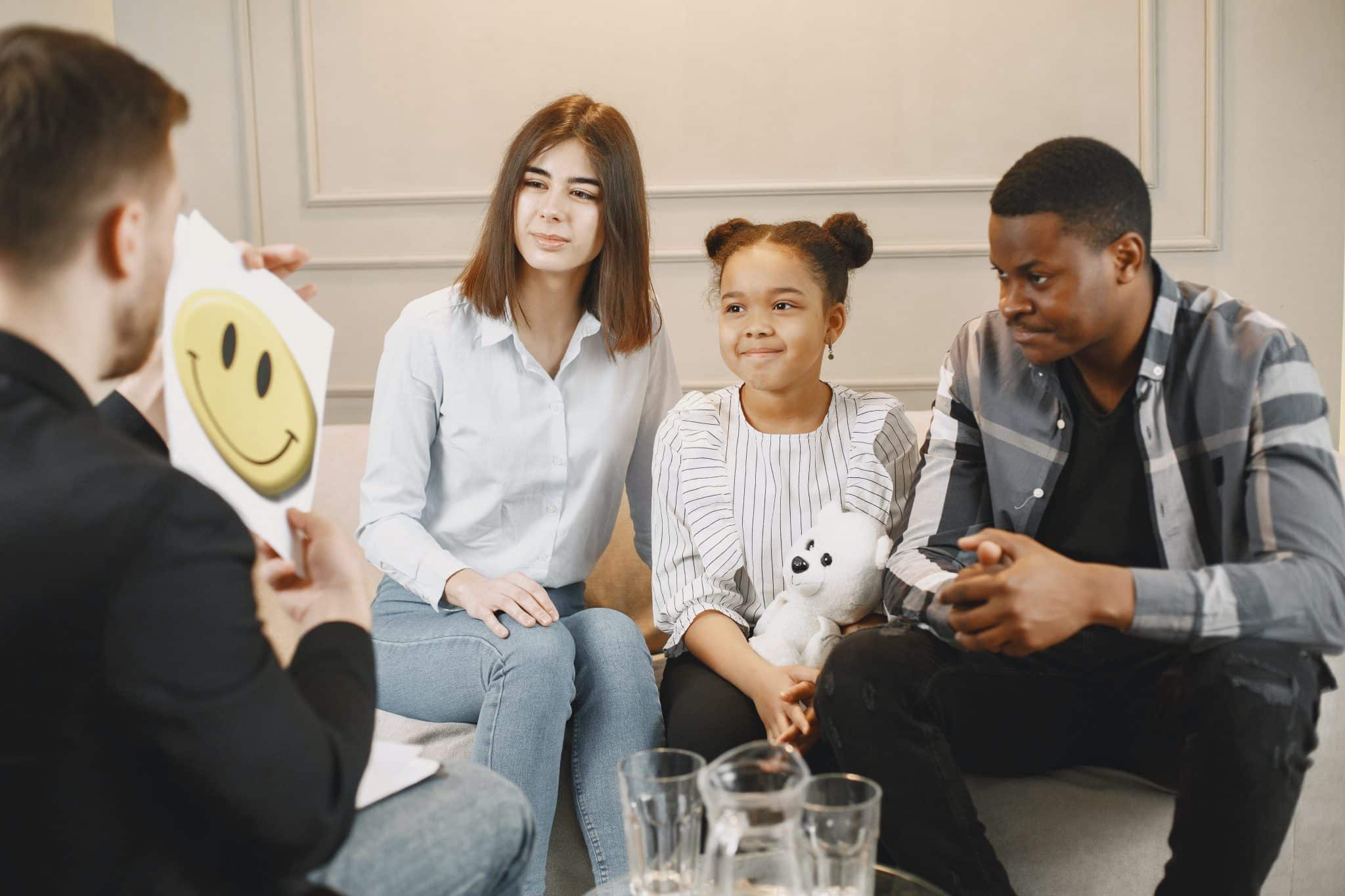What is on this page
Relationship Challenges
Interpersonal relationships are an essential aspect of our daily lives, and our families represent our most significant relationships. These relationships can be both beautiful and complex, and while they can be a source of support, comfort, and love, they can also be challenging to navigate. Communication problems, power struggles, trauma, blended families, and cultural differences can all cause interpersonal challenges in family relationships.
Approaches to Help Families Overcome Challenges and Improve Relationships
Communication Problems:
Successful communication is crucial in any relationship and especially important in family relationships. Communication problems can lead to misunderstandings, hurt feelings, and conflict. Family therapy can help family members improve their communication skills and reduce misunderstandings. The therapist may teach active listening, successful speaking, and other communication methods to enhance understanding and reduce misunderstandings.
In family therapy, the therapist may also help family members identify patterns of communication that may be causing problems. For example, some family members may be more dominant in conversations, while others may be more passive. The therapist may work with family members to develop more productive and successful communication patterns.
Power Struggles:
Power struggles are a common challenge in family relationships and can be destructive. They may result from various issues, such as financial disagreements, sibling rivalry, and parenting styles. Family therapy can help family members understand each other’s perspectives and work together to resolve conflicts. The therapist may facilitate negotiation, compromise, and conflict resolution to create a harmonious family environment.
In family therapy, the therapist may also help family members identify power imbalances that may be causing problems. For example, one parent may have more authority than the other, or one sibling may have more influence. The therapist may work with family members to develop new methods for sharing power and decision-making within the family.
Trauma:
Trauma can result from various events such as abuse, neglect, losing a loved one, or divorce. Trauma affects individuals differently, leading to emotional, physical, and mental health problems. Family therapy can help family members cope with trauma by providing emotional support and teaching adaptive methods. They may also help family members understand how trauma affects each member and how to support each other during the healing process.
In family therapy, the therapist may work with family members to identify the impact of trauma on the family. They may help family members understand how trauma can affect communication, power dynamics, and family roles. The therapist may also help family members develop methods for supporting each other through healing.
Blended Families:
Blended families, where parents bring children from previous relationships together, can face unique challenges. Family therapy can help blended families overcome these challenges by addressing conflicting parenting styles, loyalty conflicts, and resentment. The therapist may help family members develop new communication and adaptive methods to build stronger bonds and a harmonious family environment.
In family therapy, the therapist may help family members understand the challenges of blending families. They may help family members develop methods for navigating conflicts between children and step-parents and for dealing with loyalty conflicts between biological and step-children. The therapist may also work with the family to establish new family traditions and rituals that help build a sense of unity and belonging.
Cultural Differences:
Cultural differences can cause misunderstandings and conflict in families. In family therapy, the therapist can help family members understand each other’s cultural beliefs and values. They may encourage family members to discuss their cultural backgrounds, beliefs, and practices to build empathy and understanding. This can help family members appreciate and respect each other’s differences and build a stronger family bond.
In family therapy, the therapist may help family members identify cultural differences that may be causing conflicts. They may work with family members to develop methods for navigating these differences respectfully and productively. The therapist may also help family members identify shared values and beliefs that can bring them together despite their cultural differences.
How Therapy Can Help Interpersonal Challenges And Families
Therapy is a powerful tool that can help families overcome interpersonal challenges and build stronger relationships. Families are a fundamental part of our lives, and our relationships’ quality can significantly impact our well-being. However, navigating family relationships can be challenging, especially when communication problems, power struggles, trauma, blended families, or cultural differences are involved.
Therapy can help family members to explore and understand their feelings, thoughts, and behaviours. A trained therapist can help family members develop new ways of communicating, managing conflicts, and building healthy relationships. In therapy, family members can learn to express their needs and emotions more successfully and to listen actively and empathetically to each other.
Therapy can also help families address power imbalances within the family. A therapist can work with family members to identify these imbalances and develop methods for sharing power and decision-making. This can help create a more equitable and harmonious family environment.
Furthermore, therapy can help families come to terms and deal with trauma, loss, and other challenging life events. A therapist can provide emotional support and teach adaptive skills to help family members navigate the healing process together. Therapy can also help families navigate blended families and cultural differences by promoting empathy, understanding, and respect for each other’s differences.
Family relationships are essential, but they can be challenging to navigate. Communication problems, power struggles, trauma, blended families, and cultural differences can all cause interpersonal challenges in family relationships. Family therapy can help families overcome these challenges by improving communication, addressing power imbalances, adapting to trauma, navigating blended families, and understanding cultural differences. By working with a family therapist, families can build stronger bonds, improve their relationships, and create a more harmonious family environment.


